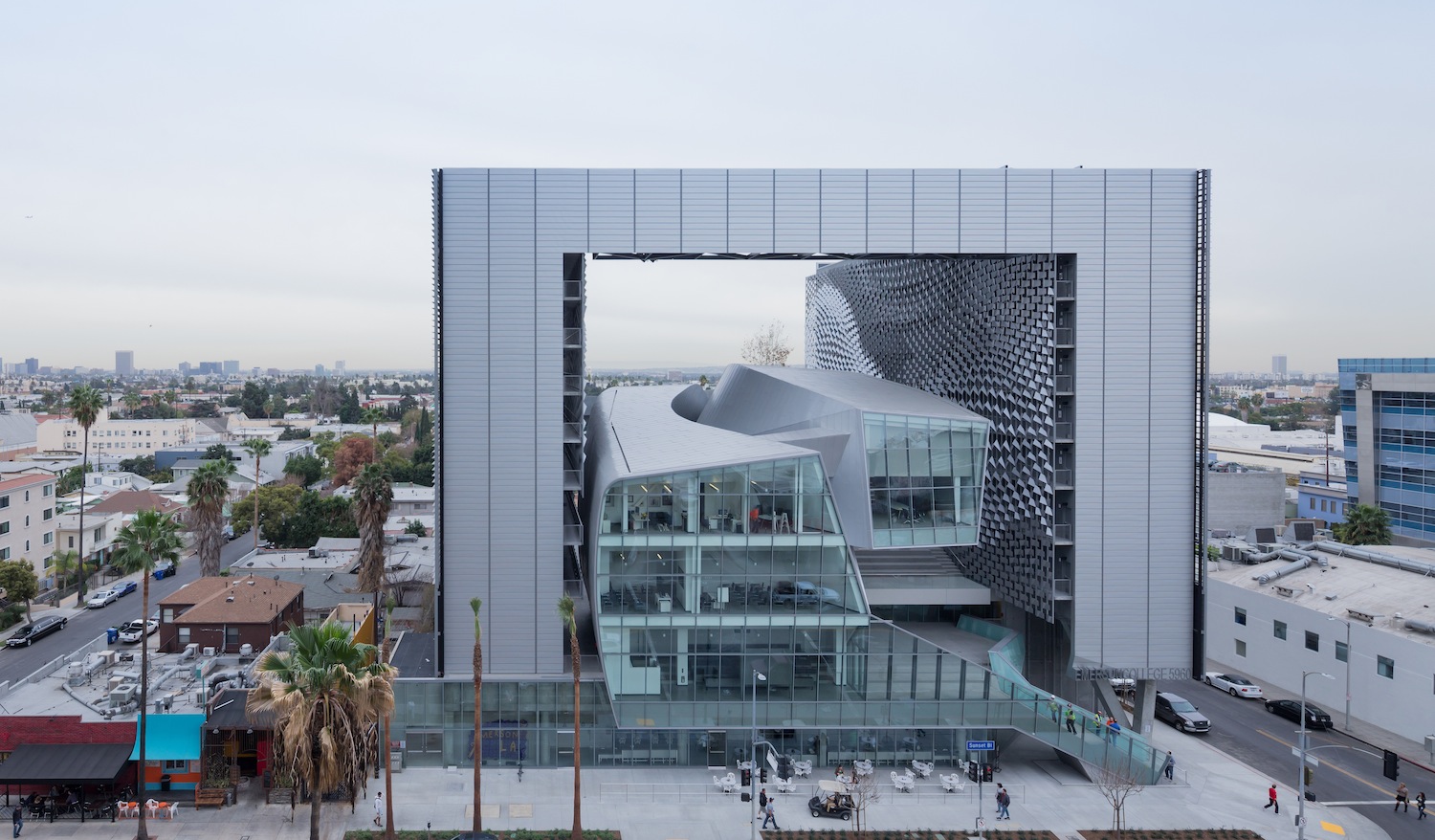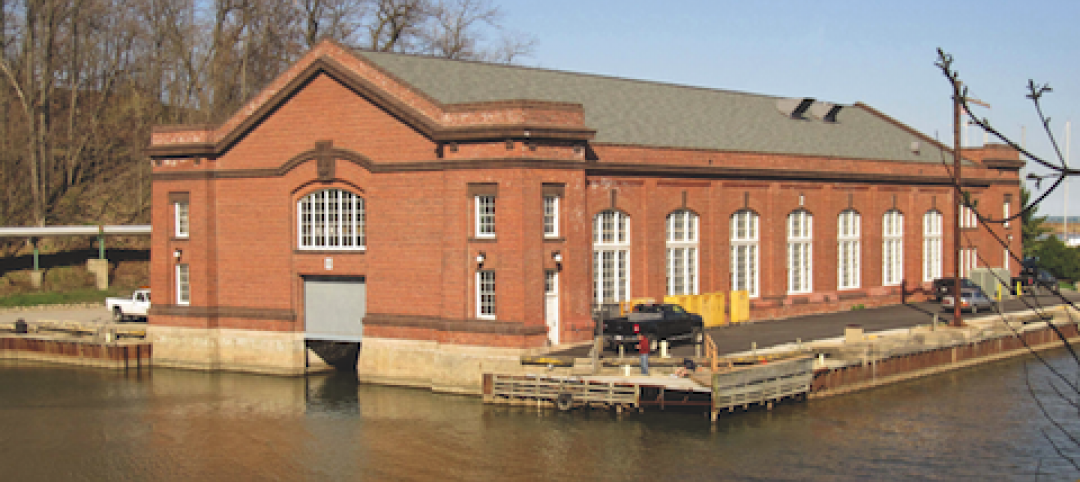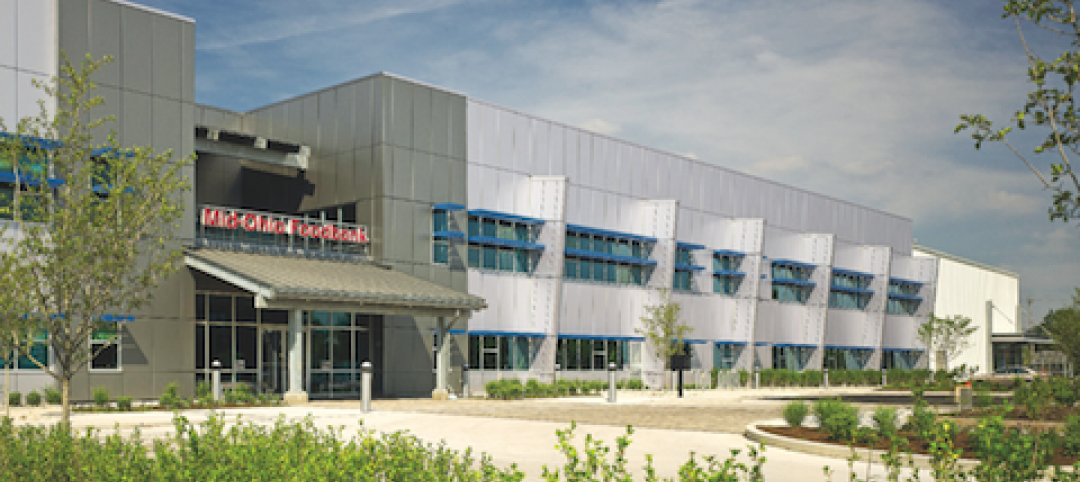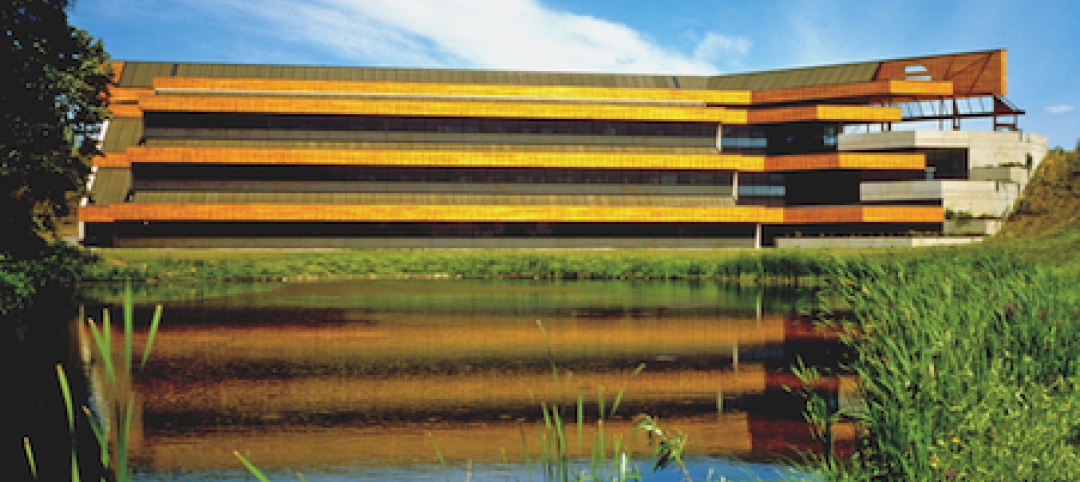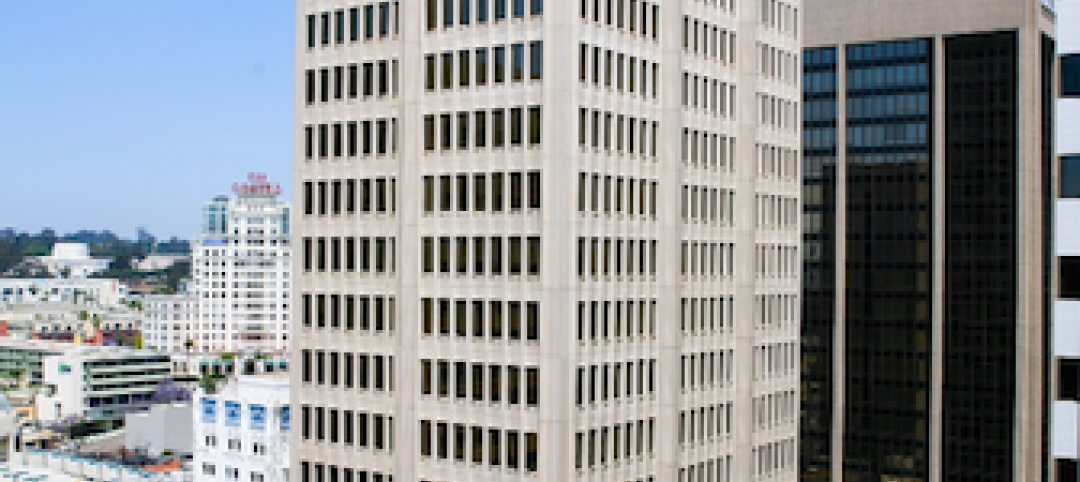Larry David, Maria Menounos, and Sofia Vergara are among the Hollywood elites scheduled to attend a star-studded gala March 8 to celebrate the opening of Emerson College's new $85 million Los Angeles campus building.
Located on Sunset Boulevard, in the heart of LA's entertainment and communications industry, the 10-story, 107,000-sf multipurpose campus can house up to 217 students and includes wired classrooms, an open-air screening and live-performance space, a Dolby Surround 7.1 audio post-production suite, a 4K screening room, computer labs, mixing suites, and a planned green screen motion capture stage.
Design architect Thom Mayne of Morphosis said the building's form, which takes the shape of a massive, shimmering aircraft hangar, housing a sculptural, glass-and-aluminum base building, is designed to "expand the interactive, social aspect of education. We focused on creating with the broader community in mind—both in terms of public space and sustainable design.”
The building’s exterior features a dynamic sun shading system that adapts to changing weather conditions to maintain optimal indoor temperature and natural light levels. Heating and cooling of the building is further optimized through an innovative passive valence system developed by Buro Happold.
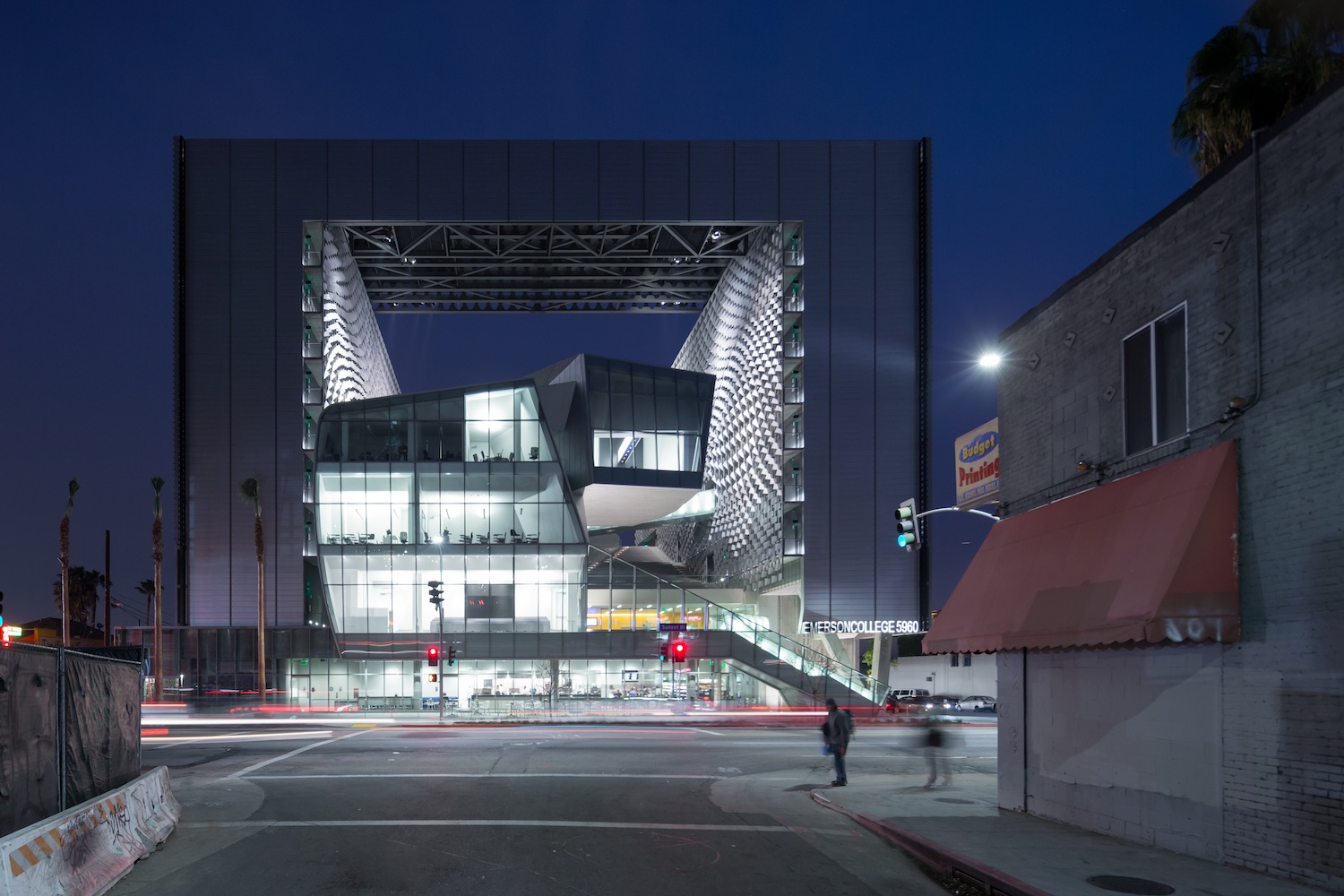
Photo: Iwan Baan - www.iwan.com / Courtesy Emerson College
Additional green design initiatives include: the use of recycled and rapidly renewable building materials; installation of efficient water-saving fixtures; a high-performance glass curtain-wall to minimize heat gain; landscaping and a living green wall; and a central management infrastructure to monitor overall building efficiency.
Morphosis' design statement:
Bringing student housing, instructional facilities, and administrative offices to one location, ELA condenses the diversity of a college campus into an urban site. Evoking the concentrated energy of East-Coast metropolitan centers in an iconic Los Angeles setting, a rich dialogue emerges between students’ educational background and their professional futures.
Fundamental to the Emerson Los Angeles experience, student living circumstances give structure to the overall building. Housing up to 217 students, the domestic zones frame a dynamic core dedicated to creativity, learning, and social interaction. Composed of two slender residential towers connected by a helistop, the 10-story square frame encloses a central open volume to create a flexible outdoor “room.”
A sculpted form housing classrooms and administrative offices weaves through the void, defining multi-level terraces and active interstitial spaces that foster informal social activity and creative cross-pollination. Looking out onto the multi-level terrace, exterior corridors to student suites and common rooms are shaded by an undulating, textured metal scrim spanning the full height of the towers’ interior face.
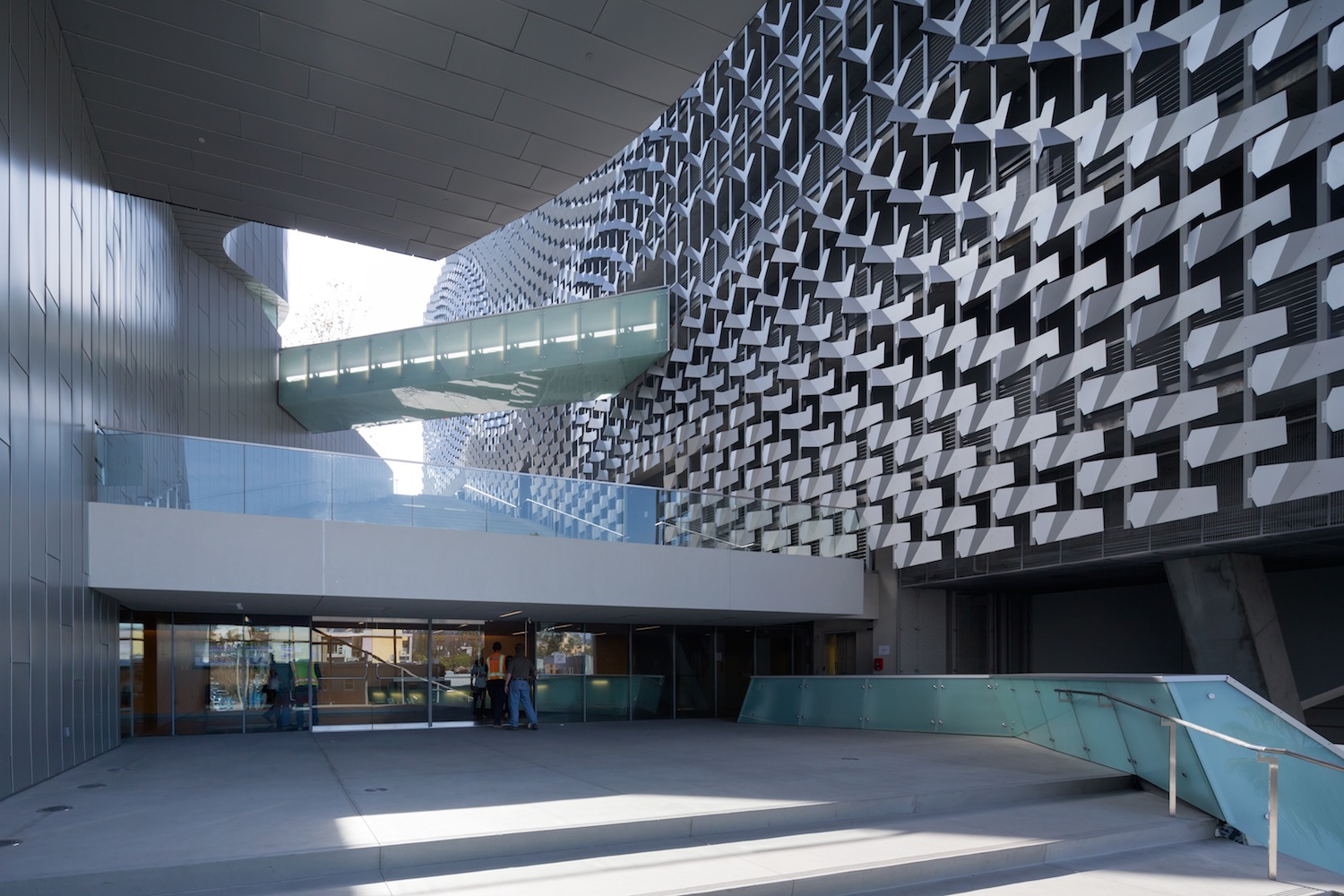
Photo: Iwan Baan - www.iwan.com / Courtesy Emerson College
Looking to the local context, the center finds a provocative precedent in the interiority of Hollywood film studios, where outwardly regular façades house flexible, fantastical spaces within. With rigging for screens, media connections, sound, and lighting incorporated into the façade’s metal framework, this dynamic visual backdrop also serves as a flexible armature for outdoor performances. The entire building becomes a stage set for student films, screenings, and industry events, with the Hollywood sign, the city of Los Angeles, and the Pacific Ocean in the distance providing added scenery.
Anticipated to achieve a LEED Gold rating, the new center champions Emerson’s commitment to both sustainable design and community responsibility. Wrapping the building’s northwest corner, a green wall underscores the towers’ actively changing exterior skin. Connected to weather stations that track the local climate, temperature, and sun angle, the automated sunshade system opens and closes horizontal fins outside the high-performance glass curtain-wall to minimize heat gain while maximizing daylight and views.
Further green initiatives include the use of recycled and rapidly renewable building materials, installation of efficient fixtures to reduce water use by 40%, energy savings in heating and cooling through a passive valence system, and a building management and commissioning infrastructure to monitor and optimize efficiency of all systems.
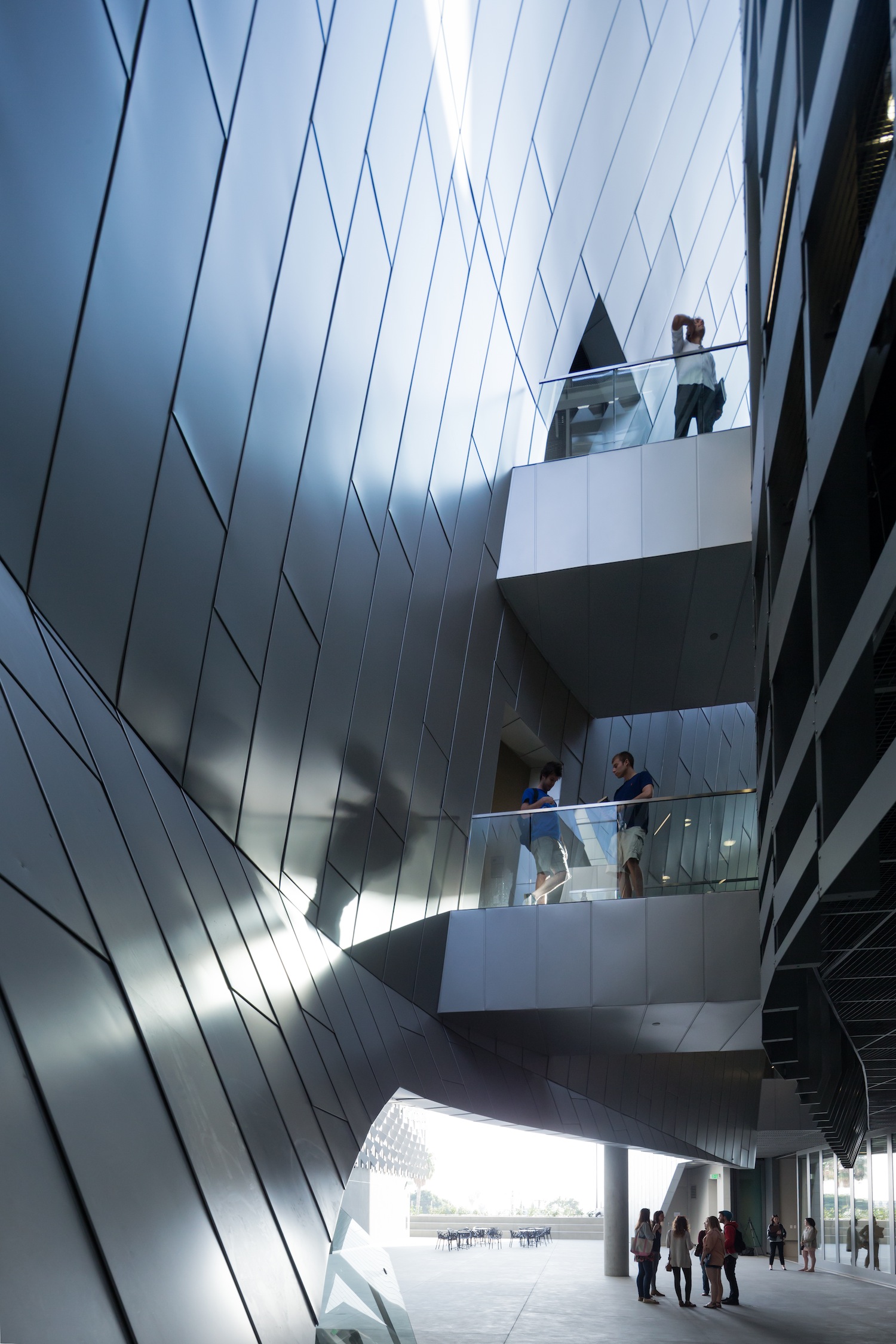
Photo: Iwan Baan - www.iwan.com / Courtesy Emerson College
Building Team
Architect: Morphosis Architects (Thom Mayne)
Structural engineer: John A. Martin Associates, Inc.
MEP engineer: Buro Happold
General contractor: Hathaway Dinwiddie Construction Company
Development consultant: Robert Silverman
Civil engineer: KPFF
IT/BIM implementation: Synthesis
Lighting consultant: Horton Lees Brogden Lighting Design, Inc.
Specifications: Technical Resources Consultants, Inc.
Theater consultant: Auerbach Pollock Friedlander
Acoustic consultant: Newson Brown Associates LLC
Audiovisual/IT consultant: Waveguide Consulting Inc.
Code/life safety consultant: Arup
Facade consultant: A. Zahner Architectural Metals; JA Weir Associates
Cost consultant: Davis Langdon
Vertical transportation: Edgett Williams Consulting Group, Inc.
Curtain wall consultant: Walters & Wolf
LEED consultant: Davis Langdon
Graphics: Follis Design
Waterproofing consultant: Independent Roofing Consultants
Geotechnical consultant: Geotechnologies Inc.
Sustainability: Davis Langdon
Landscape consultant: Katherine Spitz Associates
Architectural specifications consultant: Technical Resources Consultants, Inc.
Architectural visualization: Kilograph
Smoke control: Exponent
Exterior building maintenance: Olympique
Project Information
Cost: $85 million
Total size: 107,000 sf (70,500 sf residential; 30,100 sf instructional/administrative; 6,400 sf retail for Emerson kitchen)
Lot size: 37,351 sf
Building height: 130 feet; 10 stories
Parking: three levels of subterranean parking with 239 parking spaces
Housing: capacity for 217 students: 159 single rooms (eight are designated for resident assistants), 29 double rooms, and four faculty/staff apartments
Instructional spaces: six general purpose classrooms; computer lab; editing lab; audio lab; distance learning room; two performance studios; two dressing rooms; two study rooms; 4K screening room; large assembly room; audio post mixing suite
For more information, read Emerson's article on the Emerson LA grand opening and the LA Times report.
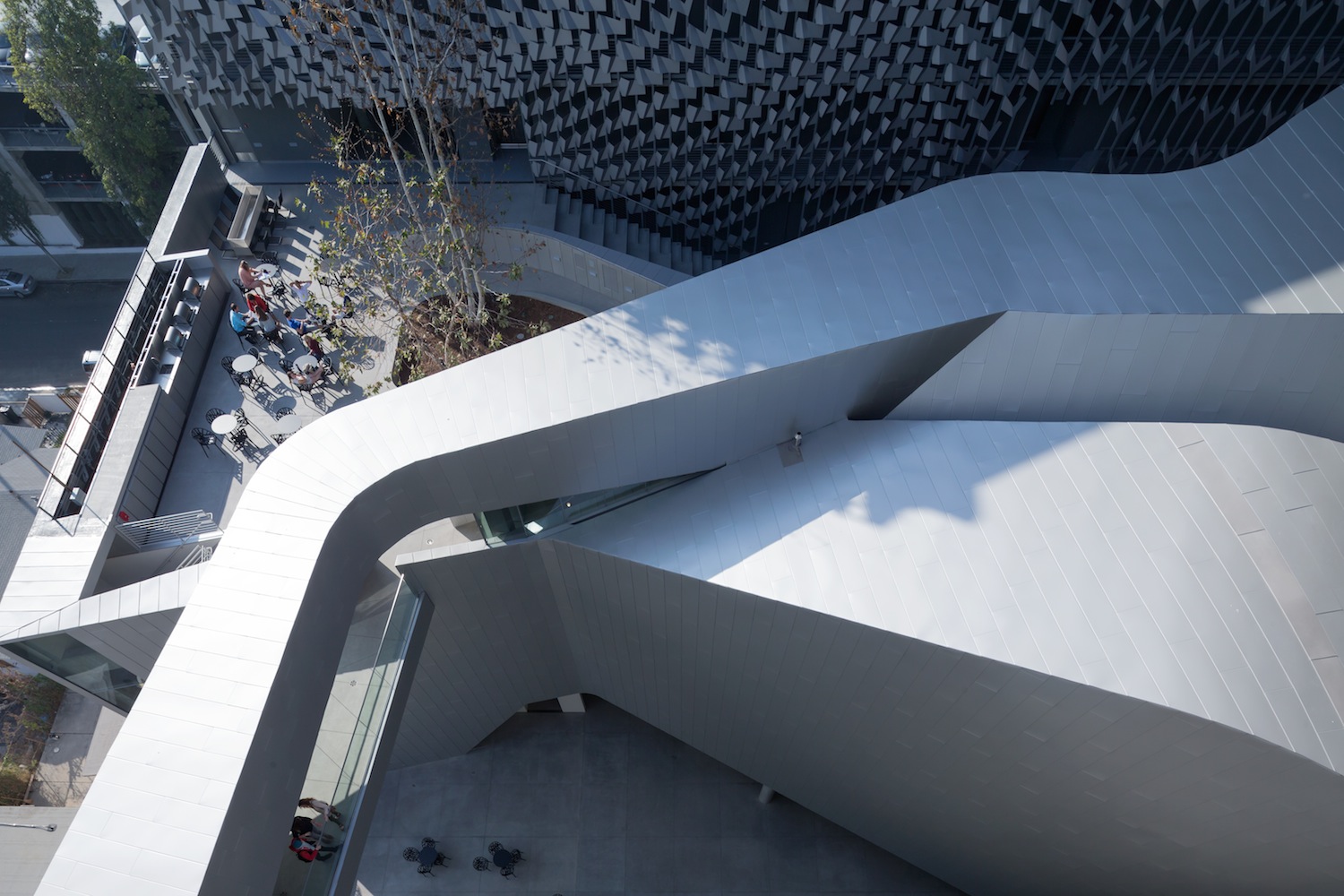
Photo: Iwan Baan - www.iwan.com / Courtesy Emerson College
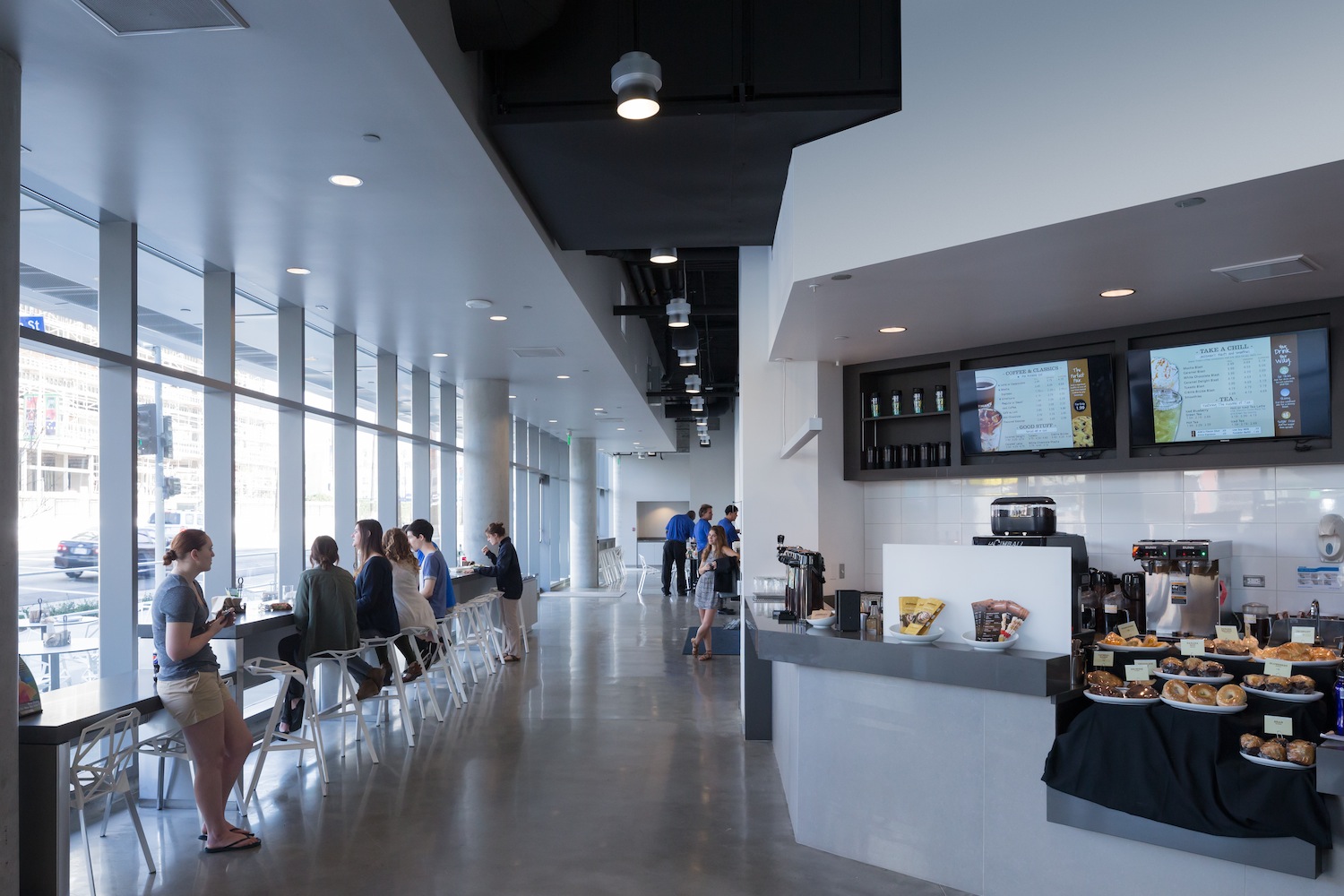
Photo: Iwan Baan - www.iwan.com / Courtesy Emerson College
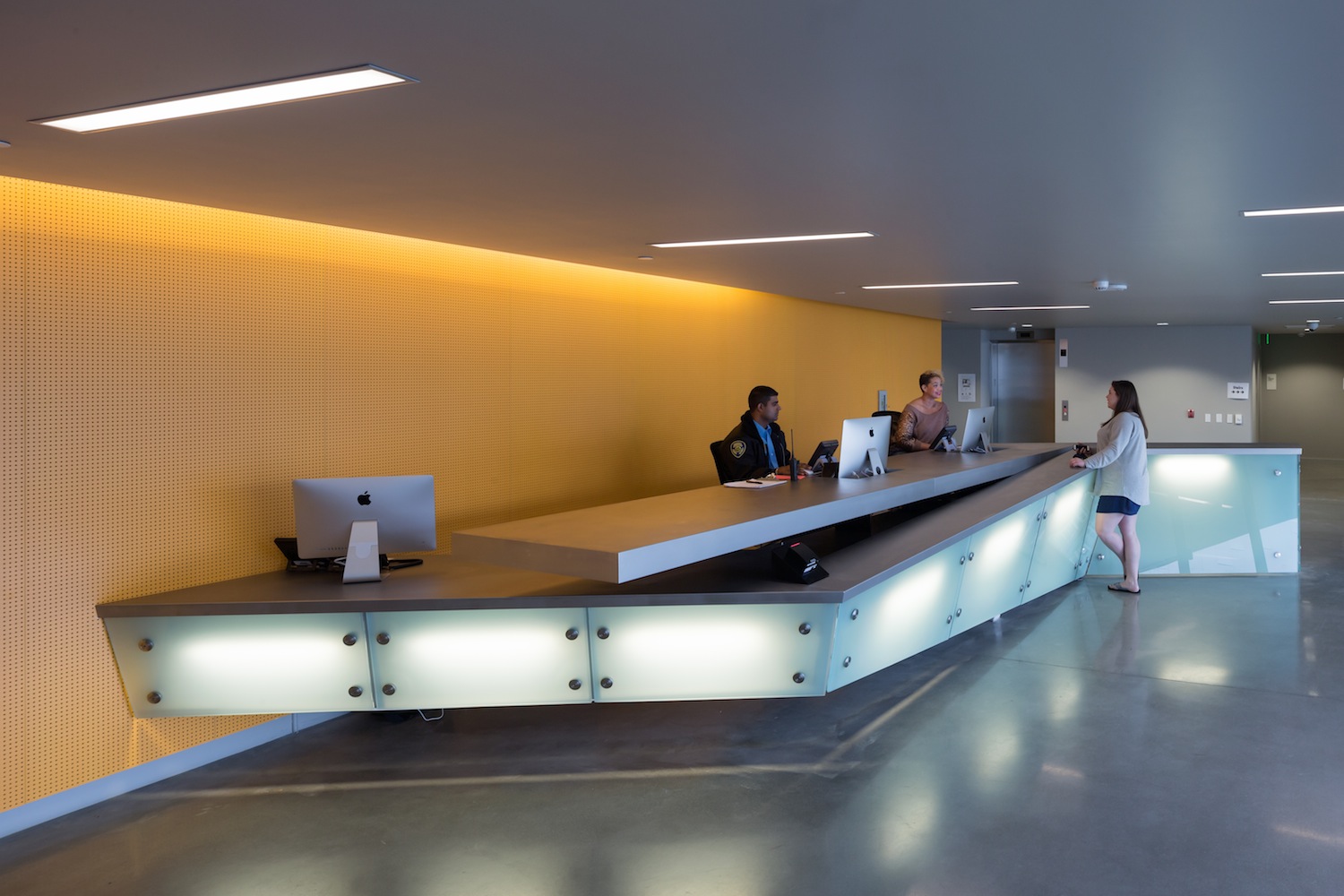
Photo: Iwan Baan - www.iwan.com / Courtesy Emerson College
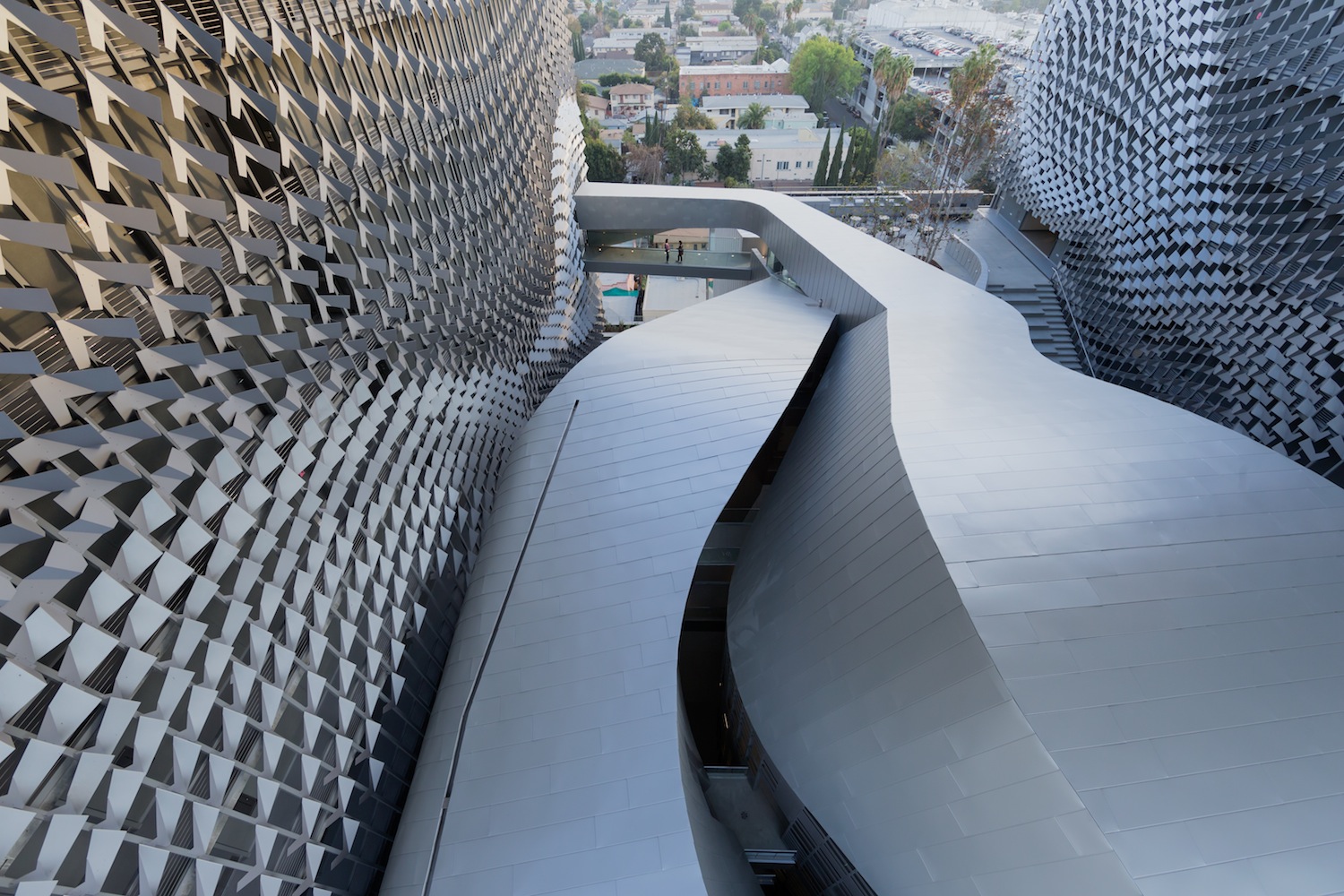
Photo: Iwan Baan - www.iwan.com / Courtesy Emerson College
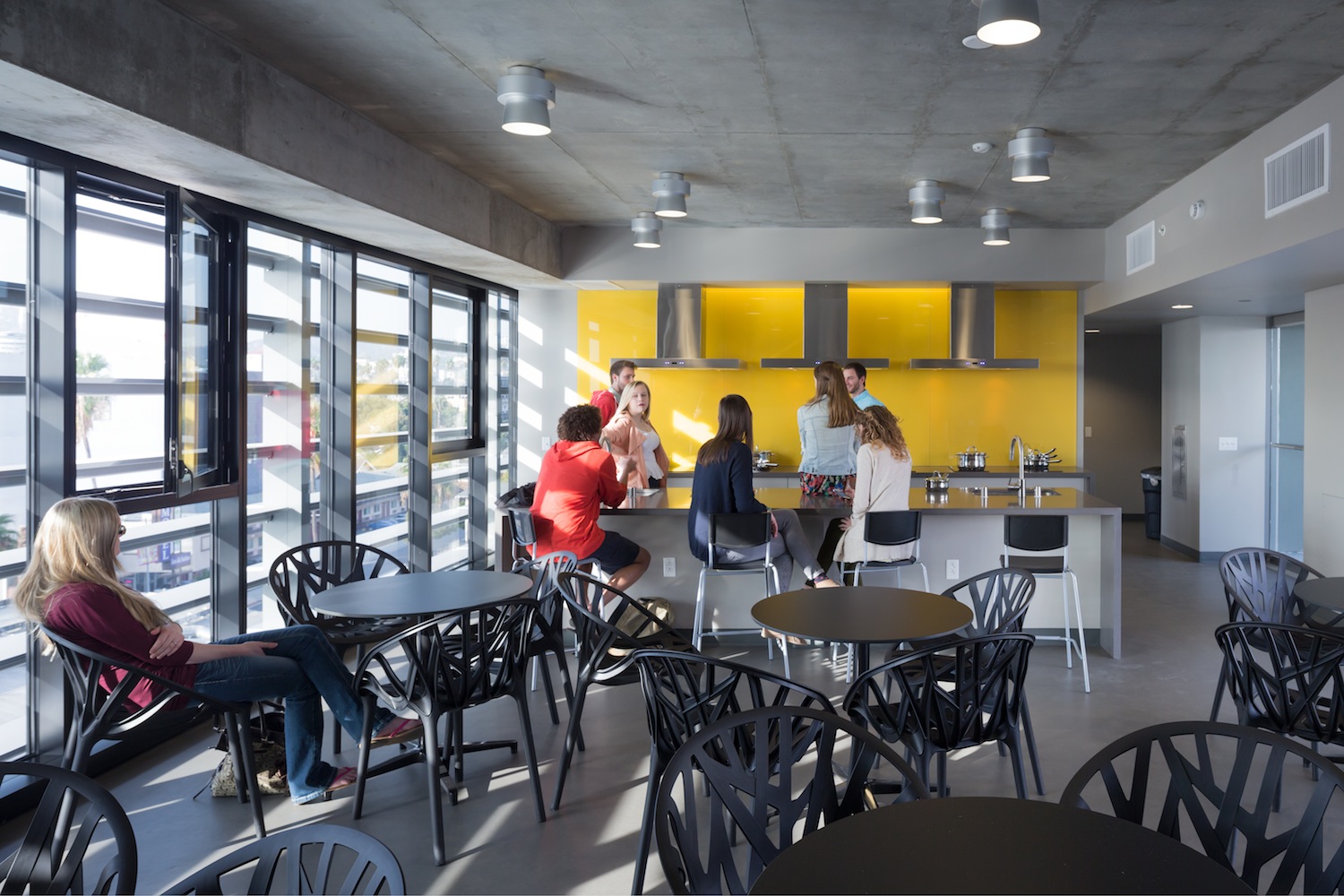
Photo: Iwan Baan - www.iwan.com / Courtesy Emerson College
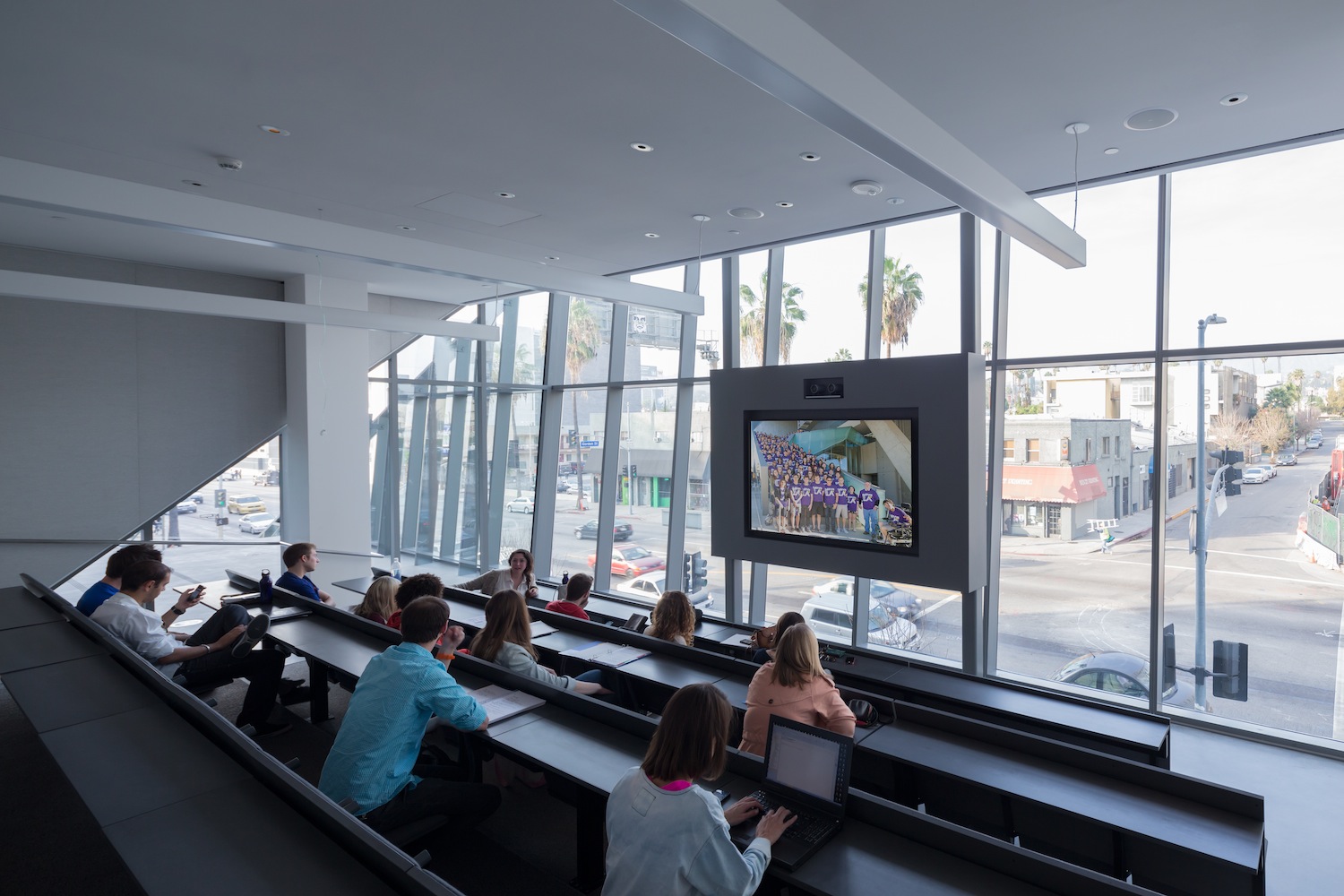
Photo: Iwan Baan - www.iwan.com / Courtesy Emerson College
Related Stories
| Oct 12, 2010
Building 13 Naval Station, Great Lakes, Ill.
27th Annual Reconstruction Awards—Gold Award. Designed by Chicago architect Jarvis Hunt and constructed in 1903, Building 13 is one of 39 structures within the Great Lakes Historic District at Naval Station Great Lakes, Ill.
| Oct 12, 2010
Full Steam Ahead for Sustainable Power Plant
An innovative restoration turns a historic but inoperable coal-burning steam plant into a modern, energy-efficient marvel at Duke University.
| Oct 12, 2010
From ‘Plain Box’ to Community Asset
The Mid-Ohio Foodbank helps provide 55,000 meals a day to the hungry. Who would guess that it was once a nondescript mattress factory?
| Oct 11, 2010
HGA wins 25-Year Award from AIA Minnesota
HGA Architects and Engineers won a 25-Year Award from AIA Minnesota for the Willow Lake Laboratory.
| Oct 11, 2010
MBMA Releases Fire Resistance Design Guide for metal building systems
The Metal Building Manufacturers Association (MBMA) announces the release of the 2010 Fire Resistance Design Guide for Metal Building Systems. The guide provides building owners, architects, engineers, specifiers, fire marshals, building code officials, contractors, product vendors, builders and metal building manufacturers information on how to effectively meet fire resistance requirements of a project with metal building systems.
| Oct 11, 2010
Rhode Island is the first state to adopt IGCC
Rhode Island is the first state to adopt the International Green Construction Code (IGCC). The Rhode Island Green Buildings Act identifies the IGCC as an equivalent standard in compliance with requirements that all public agency major facility projects be designed and constructed as green buildings. The Rules and Regulations to implement the Act take effect in October 2010.
| Oct 8, 2010
Union Bank’S San Diego HQ awarded LEED Gold
Union Bank’s San Diego headquarters building located at 530 B Street has been awarded LEED Gold certification from the Green Building Certification Institute under the standards established by the U.S. Green Building Council. Gold status was awarded to six buildings across the United States in the most recent certification and Union Bank’s San Diego headquarters building is one of only two in California.
| Oct 6, 2010
Windows Keep Green Goals in View
The DOE's National Renewable Energy Laboratory has almost 600 window openings, and yet it's targeting LEED Platinum, net-zero energy use, and 50% improvement over ASHRAE 90.1. How the window ‘problem’ is part of the solution.
| Oct 6, 2010
From grocery store to culinary school
A former West Philadelphia supermarket is moving up the food chain, transitioning from grocery store to the Center for Culinary Enterprise, a business culinary training school.
| Sep 30, 2010
Luxury hotels lead industry in green accommodations
Results from the American Hotel & Lodging Association’s 2010 Lodging Survey showed that luxury and upper-upscale hotels are most likely to feature green amenities and earn green certifications. Results were tallied from 8,800 respondents, for a very respectable 18% response rate. Questions focused on 14 green-related categories, including allergy-free rooms, water-saving programs, energy management systems, recycling programs, green certification, and green renovation.


